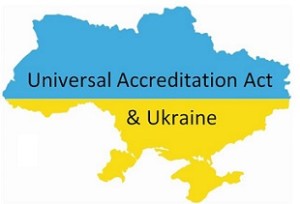 Ukraine has a long history of international adoptions. In 2003, children adopted from Ukraine were typically between the ages of 14 months and 8 years by families from various countries including Italy, France and United States. American families’ desire to adopt from Ukraine has continued over the past decade. Ukraine’s orphan crisis began to improve over the past decade due to international adoption and increased efforts for domestic adoptions. By 2008, most children available for adoption from Ukraine were over the age of 6 and often a part of a sibling group.
Ukraine has a long history of international adoptions. In 2003, children adopted from Ukraine were typically between the ages of 14 months and 8 years by families from various countries including Italy, France and United States. American families’ desire to adopt from Ukraine has continued over the past decade. Ukraine’s orphan crisis began to improve over the past decade due to international adoption and increased efforts for domestic adoptions. By 2008, most children available for adoption from Ukraine were over the age of 6 and often a part of a sibling group.
While adopting from Ukraine continued to be an option for families wanting to adopt from Eastern Europe, it did have its challenges. The process was changed by Ukraine government several times over the past 10 years creating delays and frustrations for many prospective parents. But the challenges were not only from government changes but even more significantly from adoptive parents themselves. Ukraine found that parents were not completing their post placement reports as they had promised and some families were not prepared for the challenges associated with raising a child that has experienced trauma and abandonment and lived in an institution.
While the Ukraine government communicated its issues and problems with American parents, the US State Department was working on a resolution. The US State Department was encouraging more and more adoption services providers to become Hague Accredited/Approved. However, many individuals that worked in Ukraine were not professional adoption service providers. The US State Department was determined to improve international adoptions and soon the US Congress passed the Universal Accreditation Act 2012 (UAA) which requires all adoption services providers to be Hague approved/accredited. The implementation of UAA prohibits the popular process of independent adoptions from Ukraine and now requires parents adopting from Ukraine (and any other country) to use a professional agency to help with their process, education, support services and post placements.
It appears there is still some confusion regarding the reach of the UAA even by Ukraine, other countries and accredited/approved agencies. However, the guidance given thus far by the US State Department indicates that any individual or organization providing any of the 6 main adoption services (home study, document preparation, child matching, and child placement) must be a Hague agency or be supervised by a Hague agency. It is clear that independent international adoptions can no longer happen. However, some parents believe that if they use a Hague agency for their home study then their adoption will qualify and they can proceed with an independent adoption after receipt of the home study. The only way the adoption will qualify for the orphan visa is if the home study agency acts as the not only the home study agency but the primary placing agency (meaning taking all liabilities and responsibilities for the entire process). It seems against best practices for any Hague agency to desire to take on the responsibility of an entire process when the only part they were knowledgeable and involved in was the home study. One of the major purposes of the Hague convention was to ensure that the entire international adoption process is supervised by a qualified adoption service provider in an effort to improve the entire process. If the UAA only required home studies by an approved/accredited agency then its implementation is minimal and has little affect.
If you are considering an international adoption, be aware that there is still confusion regarding the application of UAA. However, the interpretation I have provided was developed by legal analysis and examination of the Hague Convention, UAA, USCIS directive and discussion with US State Department.
The changes Ukraine adoptions will experience should benefit the process and the children that are adopted. While there is not guaranteed resolution to all problems, delays, corruption or problems, UAA is a significant step forward in creating a more ethical and transparent international adoption process for all countries including Ukraine.
For more information about adopting from Ukraine click here.
For more information about international adoption click here.
